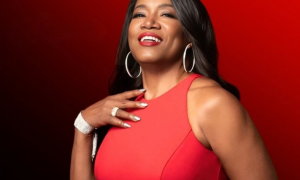In November of 2008 I moved to New York City. I'd been working in local, regional theatre and tours for over ten years and I was determined to get a job playing keyboards on Broadway. This is part 5 of a 5-part series. For the full story, visit the series home page:
How I Became a Broadway Musician
The final chapter in this story is different than the others.
In Parts 1-4 I was able to pinpoint specific actions, conversations and opportunities that helped me advance my career.
I spent years building my experience and my resume on tours and regional theaters. I moved to New York. I was able to meet other keyboard players through email and coffee meetings. I connected with other music directors online through social networking websites, email lists and blog posts. I took every gig seriously and did my best to establish a good reputation.
At every dead end or roadblock I’d try to uncover what “the next step” was for my career and then I’d find a way to execute it.
Yet, after I’d been in New York for a couple years I mostly stopped all of the things I came up with in Parts 1-4. Eventually I stopped keeping up with my spreadsheet of current Broadway keyboard players and I stopped writing my introductory emails. I stopped posting as many articles about Broadway and music directing (and for awhile – about anything) here on MusicianWages.com.
There were 3 reasons for this:
In hindsight – I guess I’d broken into the scene, right? That’s what it feels like. Suddenly I was just inside of it – playing piano for auditions and classes, music directing projects here and there, going out for drinks with my friends.
I’d say it was mid-2010 when I’d started to be part of the scene. Part of me is glad that it was so difficult, and it took me so long, to get to this point. It taught me to really appreciate every opportunity that came my way.
Jeff
The third reason things changed for me is a guy named Jeff.
Let’s go back for a minute. I met Jeff in 2008. At the time he was the Associate Conductor for a new show on Broadway and I’d written him in the first wave of emails I sent out in Part 3. Jeff wrote me back a really encouraging email with a lot of great advice in it. Later we met for a quick dinner before his show.
From day one Jeff was an incredible help to me. He recommended me for work with important people, he hired me for side projects and, essentially, opened the door for me to the Broadway world and mentored me as I walked in.
And very soon we were friends, too. We went out to dinner with our girlfriends. I played piano at his wedding when they got married. I found (nearly) every one of his jokes to be (nearly) funny. (I kid, I kid!)
We had a lot of similar interests in keyboards, technology and theater. So when Jeff had a project come in that he couldn’t take, he would send me as his sub.
And the gigs Jeff got calls for were incredible! Cirque du Soleil flew me to Japan for a week just to meet me on Jeff’s recommendation. Remember that synth programming gig in LA that I mentioned? Jeff. The major reading I was the assistant music director for? Jeff recommended me.
And the night I first played on Broadway? Jeff again.
Now if you ask him, he’ll tell you that he never gave me anything I didn’t deserve and he didn’t do me any favors. He’s a nice guy like that.
But you’ve ready this whole story – right? I mean, you can see what a difference my buddy Jeff made on my career. It is immeasurable.
Playing on Broadway
Ok, so it’s early 2011 and Jeff is going to be the the Associate Conductor to a new Broadway show. (Because the only pants he wears are fancy pants, duh.) He asks me if I’ll be one of his 4 subs.
He gave me the K2 book in February to start learning.
I was excited – of course. I worked on the book until everything sat just right in my fingers. I went in before shows to practice on the rig. I listened to recordings of the show on the subway.
As you can imagine, I didn’t want to screw this up.
So one day in March, a few weeks after the show opened, Jeff called. The conductor needed to take a sick day. Jeff’s was going to conduct the show and they needed me to play K2.
I put on black clothes and I left for the theater.
Conclusion
Getting a musician job on Broadway isn’t impossible. For that matter, getting any gig you want isn’t impossible – making a living as a musician isn’t impossible – and don’t believe anyone that tells you otherwise.
So if you there’s a gig out there that you really want – start working towards it. Identify the roadblocks in your way and find a way around them. If it takes 8 years or it takes 20 years – who cares? Do you want the gig or not?
If there’s anything to take away from this story, it’s this:
Thanks so much for reading this story. I hope it helps someone out there. Please leave a comment below with your thoughts – every comment is emailed right to me and I read every one. I always look forward to hearing from readers.
Also, check out the resources page for this series that also posted today. There are a lot of resources on that page for both aspiring and veteran Broadway musicians.
Thanks again for reading – and please use the social network links below to share these articles with your friends and please consider subscribing to the site through email or RSS.
How I Became a Broadway Musician
The final chapter in this story is different than the others.
In Parts 1-4 I was able to pinpoint specific actions, conversations and opportunities that helped me advance my career.
I spent years building my experience and my resume on tours and regional theaters. I moved to New York. I was able to meet other keyboard players through email and coffee meetings. I connected with other music directors online through social networking websites, email lists and blog posts. I took every gig seriously and did my best to establish a good reputation.
At every dead end or roadblock I’d try to uncover what “the next step” was for my career and then I’d find a way to execute it.
Yet, after I’d been in New York for a couple years I mostly stopped all of the things I came up with in Parts 1-4. Eventually I stopped keeping up with my spreadsheet of current Broadway keyboard players and I stopped writing my introductory emails. I stopped posting as many articles about Broadway and music directing (and for awhile – about anything) here on MusicianWages.com.
There were 3 reasons for this:
I made a lot of great friends. Somewhere between emailing strangers for advice and tweeting my thoughts on Forever Plaid vocal arrangements I made some very genuine relationships with colleagues in my field. I mean, it’s not surprising that a lot of the MDs I met were a lot like me, right? Everyone came from different backgrounds, but we were all doing the same thing.
We’d all go out for drinks, or a show, or whatever. We’d talk about anything…home, people, gossip. You know – friend stuff. I didn’t really need to email strangers anymore. I was friends with people that were playing on Broadway.
It was fun – and easy, in the end – to meet so many people with the same interests as I had. It was cool to be a part of a community.
I had enough work. Eventually – in spurts – I would suddenly have more work than I could handle. I went to LA to program the synths on a new musical, I arranged parts for a concert at Town Hall, I was the assistant music director for a major reading. I finally wasn’t totally broke all the time. (What a relief.)
There were still dry patches when no work would come in (November thru January seems to always to be a slow time here in New York if you don’t land a holiday gig), but it wasn’t like that first winter spent on unemployment checks.
In hindsight – I guess I’d broken into the scene, right? That’s what it feels like. Suddenly I was just inside of it – playing piano for auditions and classes, music directing projects here and there, going out for drinks with my friends.
I’d say it was mid-2010 when I’d started to be part of the scene. Part of me is glad that it was so difficult, and it took me so long, to get to this point. It taught me to really appreciate every opportunity that came my way.
Jeff
The third reason things changed for me is a guy named Jeff.
Let’s go back for a minute. I met Jeff in 2008. At the time he was the Associate Conductor for a new show on Broadway and I’d written him in the first wave of emails I sent out in Part 3. Jeff wrote me back a really encouraging email with a lot of great advice in it. Later we met for a quick dinner before his show.
From day one Jeff was an incredible help to me. He recommended me for work with important people, he hired me for side projects and, essentially, opened the door for me to the Broadway world and mentored me as I walked in.
And very soon we were friends, too. We went out to dinner with our girlfriends. I played piano at his wedding when they got married. I found (nearly) every one of his jokes to be (nearly) funny. (I kid, I kid!)
We had a lot of similar interests in keyboards, technology and theater. So when Jeff had a project come in that he couldn’t take, he would send me as his sub.
And the gigs Jeff got calls for were incredible! Cirque du Soleil flew me to Japan for a week just to meet me on Jeff’s recommendation. Remember that synth programming gig in LA that I mentioned? Jeff. The major reading I was the assistant music director for? Jeff recommended me.
And the night I first played on Broadway? Jeff again.
Now if you ask him, he’ll tell you that he never gave me anything I didn’t deserve and he didn’t do me any favors. He’s a nice guy like that.
But you’ve ready this whole story – right? I mean, you can see what a difference my buddy Jeff made on my career. It is immeasurable.
Playing on Broadway
Ok, so it’s early 2011 and Jeff is going to be the the Associate Conductor to a new Broadway show. (Because the only pants he wears are fancy pants, duh.) He asks me if I’ll be one of his 4 subs.
He gave me the K2 book in February to start learning.
I was excited – of course. I worked on the book until everything sat just right in my fingers. I went in before shows to practice on the rig. I listened to recordings of the show on the subway.
As you can imagine, I didn’t want to screw this up.
So one day in March, a few weeks after the show opened, Jeff called. The conductor needed to take a sick day. Jeff’s was going to conduct the show and they needed me to play K2.
I put on black clothes and I left for the theater.
Conclusion
Getting a musician job on Broadway isn’t impossible. For that matter, getting any gig you want isn’t impossible – making a living as a musician isn’t impossible – and don’t believe anyone that tells you otherwise.
So if you there’s a gig out there that you really want – start working towards it. Identify the roadblocks in your way and find a way around them. If it takes 8 years or it takes 20 years – who cares? Do you want the gig or not?
If there’s anything to take away from this story, it’s this:
- Community is everything – find your community and do your part to help it grow. Make friends with like-minded colleagues and help people when you can. If you can’t find a community – make one yourself.
- Find a survival job that works for you – I once put together this list of best and worst day jobs for musicians. See what you think. Find something that doesn’t interfere with your music career – until that day when you don’t need a day job anymore.
- Use the internet – I used social networks, blogging, email and countless other online tools to help me find my community and get the gig that I wanted.
- You need help – It was the help of friends like Jeff, Michael, Ryan and others that allowed me to achieve my goal. Did I mention community is important?
- Use your strengths – Blogging and writing doesn’t have anything to do with playing keyboards, but it’s something I could do – so I tried to find a way to use it to my advantage.
Thanks so much for reading this story. I hope it helps someone out there. Please leave a comment below with your thoughts – every comment is emailed right to me and I read every one. I always look forward to hearing from readers.
Also, check out the resources page for this series that also posted today. There are a lot of resources on that page for both aspiring and veteran Broadway musicians.
Thanks again for reading – and please use the social network links below to share these articles with your friends and please consider subscribing to the site through email or RSS.

























